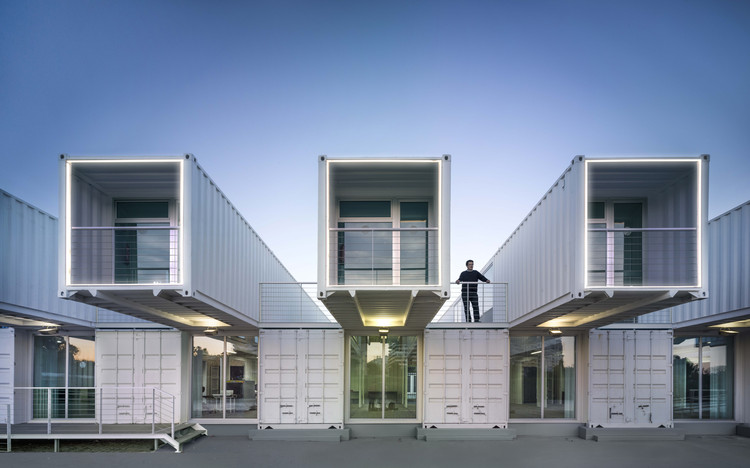In the world of construction, time isn’t just money—it’s progress. Whether you’re expanding a business, adding classrooms to a growing school, or responding to a pressing need for new healthcare facilities, delays can come at a serious cost. That’s why modular buildings have become the go-to choice for projects where time is of the essence. They offer a practical, efficient alternative to traditional builds, helping you meet your deadlines without compromising on quality.
At Paragon Space, we’ve been delivering modular solutions for more than 15 years. And one thing’s clear: when speed matters, modular construction delivers.
What Are Modular Buildings?
Modular buildings are prefabricated structures that are manufactured off-site, typically in a factory setting, before being transported to their final location for assembly. The process involves constructing individual units, known as modules, that are then joined together to form a complete building.
Because this work is conducted in a controlled environment, there is less room for delays, disruptions, and inconsistencies. Each module is built to exact specifications and undergoes quality checks before leaving the factory. Once delivered, these structures can be installed and made ready for use in a fraction of the time it takes to build something from scratch using traditional methods.
Whether you need additional office space, temporary classrooms, welfare facilities, or even emergency medical units, modular buildings are versatile, fast, and incredibly reliable.
How Modular Buildings Speed Up Construction
Let’s break down why modular buildings can significantly reduce construction times, often by as much as 50% compared to traditional methods.
1. Off-Site and On-Site Work Happen Simultaneously
In a traditional build, everything happens in sequence—site clearance, foundation work, structure assembly, internal fit-out, and so on. Each step must be completed before the next can begin, which means delays quickly pile up.
With modular construction, off-site fabrication and on-site groundwork can occur simultaneously. While your site is being prepped, your building is already being manufactured in the factory. This parallel workflow shortens project timelines significantly, letting you hit the ground running.
2. No Weather Woes
If you’ve ever been involved in a traditional construction project, you’ll know how easily the British weather can halt progress. Rain, wind, snow, and even heatwaves can delay critical stages of a build.
Modular buildings bypass this issue. The majority of work takes place indoors in a climate-controlled environment. That means no weather delays, no ruined materials, and no pushing your schedule back because a week’s worth of rain has turned your site into a mud bath.
3. Streamlined Production Means Fewer Errors
Factory-based construction allows for a highly structured, repeatable process. Each module is built by experienced teams working in a coordinated production line, using the same tools and procedures every time. This level of consistency means fewer mistakes, higher quality, and fewer surprises down the line.
The precision of modular building also helps when it comes to installation. Modules are designed to fit together perfectly, reducing the risk of costly rework or delays on site.
4. Reduced Disruption on Site
Traditional construction sites can be noisy, messy, and full of overlapping trades working around each other. For schools, hospitals, and workplaces that need to remain open during a build, this is far from ideal.
Modular buildings arrive on-site already 80–90% complete. Assembly is fast, clean and causes minimal disruption to the surrounding environment. This is especially valuable in sensitive settings like healthcare or education, where maintaining day-to-day operations is critical.
5. Simplified Compliance and Faster Approvals
Another big benefit is speedier compliance. Because modular buildings are built in line with building regulations from the outset, much of the inspection and approval process happens during factory construction. This allows for quicker sign-offs once the building is installed.
Traditional builds often have compliance checks at each stage, which can add weeks to a timeline. With modular, that’s one less bottleneck to worry about.
Sector Spotlight: Who Benefits Most?
While modular construction has applications across virtually every sector, there are some industries where its time-saving benefits really shine.
Education
From primary schools to university campuses, educational institutions often need to expand quickly—especially when facing growing student numbers or government policy changes. Modular classrooms provide a fast, cost-effective solution that can be installed during school holidays or over a single term, minimising disruption.
Many schools across the UK have already embraced modular classrooms, valuing their speed, adaptability, and long-term durability.
Healthcare
When health services are under pressure, time is critical. During the COVID-19 pandemic, modular buildings were used to rapidly set up testing centres, wards, and vaccination hubs. Even outside of emergencies, modular healthcare buildings allow hospitals and clinics to expand their capacity with minimal fuss.
These facilities can be tailored to exact medical specifications and are often ready for use within weeks—not months.
Commercial and Office Spaces
Business growth often necessitates additional office or operational space. But waiting for a new building to go up can stall momentum. The modular offices allow businesses to scale up quickly, whether it’s adding meeting rooms, welfare areas, or fully functional office blocks.
They can also be repurposed or relocated if business needs change, offering long-term flexibility that traditional buildings struggle to match.
Public Sector
From emergency housing and community centres to transport hubs and police outposts, local authorities often need to respond quickly to public demand. Modular buildings offer a reliable, budget-friendly way to deliver essential infrastructure with tight timelines.
Choosing the Right Modular Building Manufacturer
As modular construction continues to gain popularity, more providers are entering the market—but not all offer the same level of service, quality or reliability. To make the most of modular, choosing the right manufacturer is key.
Here’s what to look for:
Proven Track Record – Look for a company with years of experience delivering successful projects. A solid portfolio speaks volumes.
Customisation Options – Every project is different. A good provider will offer tailored designs and flexible configurations to suit your specific needs.
Commitment to Quality and Compliance – Make sure they meet or exceed UK building regulations and have strong health and safety protocols in place.
Sustainability Credentials – If eco-friendliness matters to you, ask about the materials used, energy efficiency features, and waste reduction practices.
The Future of Faster, Smarter Building
Modular construction is no longer a niche solution—it’s a mainstream method that’s reshaping how we build in the UK. With growing pressure on budgets, timelines and sustainability, the demand for quick, high-quality, low-impact builds is only set to rise.
Whether you’re planning a large-scale expansion or a one-off project, modular buildings offer a smarter way to build—saving time, reducing disruption and delivering excellent results.
Why Choose Paragon Space?
At Paragon Space, we specialise in modular building solutions that deliver on speed, quality, and value. With more than 15 years of industry experience, we’ve helped schools, hospitals, councils, and businesses across the UK complete projects on time and on budget.
If you’re looking for a modular building partner that understands the importance of timing without cutting corners, we’d love to help.
Visit our modular buildings page to explore what we offer, or get in touch with our friendly team to discuss your next project.















